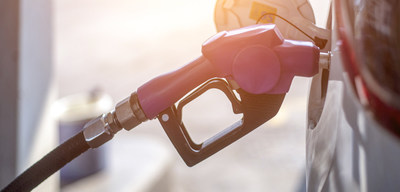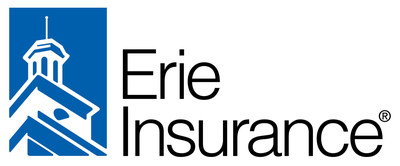5 Things That Cause Poor Gas Mileage (And 4 Ways to Fix it)
Erie Insurance, located in Erie, PA, highlights the importance of improving gas mileage to save on monthly budgets. The press release outlines five factors that negatively affect fuel economy: speed, idling, aerodynamic drag, poor maintenance, and quick trips. To enhance MPG, it recommends driving efficiently, maintaining the vehicle, combining trips, and considering more fuel-efficient cars. Additionally, Erie offers affordable car insurance options with quality coverage. The company ranks as the 11th largest homeowners insurer and 12th largest auto insurer in the U.S., with over 6 million policies in force.
- Erie is the 11th largest homeowners insurer and 12th largest automobile insurer in the U.S.
- Offers affordable car insurance with potential savings on premiums.
- None.
Insights
Analyzing...
ERIE, Pa., Nov. 24, 2020 /PRNewswire/ -- If you're looking for ways to tighten your monthly budget, there's an unexpected place you can look: Your garage. It's time to take a look at the way you drive and take care of your vehicle. Both can make a big impact on your wallet ‒ even if you're not getting behind the wheel as often as you were before the COVID-19 pandemic. Improving your gas mileage (also known as miles per gallon or MPG) is one way to start. Your gas mileage is measured by calculating the number of miles that a vehicle can travel using a single gallon of fuel.
Erie Insurance helps you identify what may be causing poor gas mileage in your vehicle, and four ways to fix it, as recommended by the U.S. Department of Energy's Office of Energy Efficiency & Renewable Energy and Consumer Reports.
Regardless of what kind of vehicle you drive, all of these factors can negatively impact gas mileage:
- Speed: The faster you drive, the more fuel your vehicle burns up. This includes how fast you accelerate, too.
- Idling: Keeping your car on for it to warm up or cool down, waiting in line at a drive-thru or waiting to pick your kid up from soccer practice can all decrease your vehicle's fuel economy.
- Aerodynamic drag and excess weight: Driving too fast or traveling with a rooftop cargo carrier? These can increase wind resistance, which causes your vehicle to use more gas. And towing any kind of trailer or hauling too much in your trunk, bed or back seat also requires more fuel.
- Poor maintenance: From underinflated tires to an unattended engine issue, failure to consistently "tune up" your vehicle can cost you a lot more at the pump. It also can create potential safety risks.
- Quick trips: A quick run to the supermarket on Monday. Stopping by the bank on Wednesday. While it may be convenient to run these errands one at a time, it can wreak havoc on your fuel economy. Quick, short trips like this from a "cold start" eat up fuel because your engine needs to warm up before it can run efficiently.
How can you improve your MPG?
- Drive more efficiently: Follow the speed limit, and drive sensibly ‒ not aggressively (e.g. quick accelerations, hard stops, etc.). On the highway, don't speed up and slow down (unless you need to for safety). Once you get up to speed, stay there. Use cruise control when possible.
- Keep your car in shape: Make sure your engine is tuned, keep tires properly inflated and use the right grade of motor oil. Check out 9 Things You Should Never Do to Your Car for basic car-care tips.
- Plan and combine trips: Spend less time sitting in traffic by avoiding rush hour on daily commutes. Run all your errands on one day rather than taking multiple short trips during the week. If you have an especially long commute, ask your employer if you can work from home a day or two per week.
- Opt for a more fuel-efficient vehicle: If your budget allows it, consider purchasing a vehicle that touts better MPG than your current one. Upgrading to a car that gets 30 MPG, compared to one that gets 20 MPG, can save you
$545 in fuel costs a year (assuming 15,000 miles of driving annually and a fuel cost of$2.18 ). Do your research to find one that's a fit. If you're considering buying a vehicle online (especially given the COVID-19 pandemic), read Buying a Car Online? Here's What You Need To Know before you get started.
You can also save your wallet by saving on your monthly premium. With ERIE, cheap auto insurance doesn't have to mean poor protection and service. ERIE provides affordable car insurance with plenty of opportunities to reduce and avoid increases to your car insurance costs while maintaining quality coverage. Find a local ERIE agent to talk you through your coverage options and learn how you can start saving.
Erie Insurance Group
According to A.M. Best Company, Erie Insurance Group, based in Erie, Pennsylvania, is the 11th largest homeowners insurer and 12th largest automobile insurer in the United States based on direct premiums written and the 16th largest property/casualty insurer in the United States based on total lines net premium written. The Group, rated A+ (Superior) by A.M. Best Company, has more than 6 million policies in force and operates in 12 states and the District of Columbia. Erie Family Life Insurance Company is rated A (Excellent) by A.M. Best Company. Life insurance policies not written in New York state. Erie Insurance Group is a FORTUNE 500 company.
News releases and more information about Erie Insurance Group are available at www.erieinsurance.com.
![]() View original content to download multimedia:http://www.prnewswire.com/news-releases/5-things-that-cause-poor-gas-mileage-and-4-ways-to-fix-it-301179834.html
View original content to download multimedia:http://www.prnewswire.com/news-releases/5-things-that-cause-poor-gas-mileage-and-4-ways-to-fix-it-301179834.html
SOURCE Erie Insurance Group







